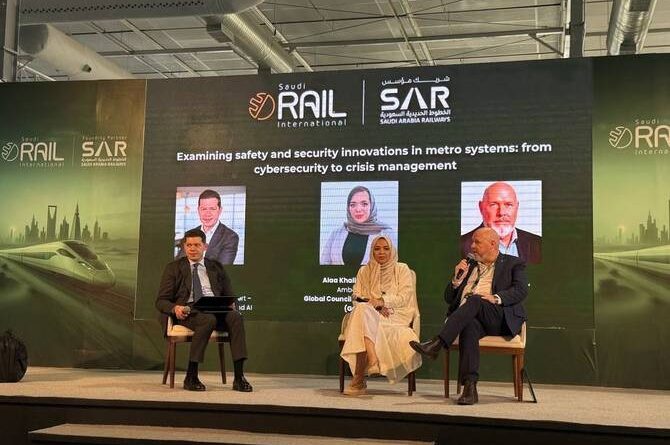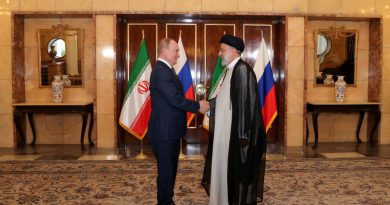Saudi Railways Drive Industrial Growth, Innovation, and Cultural Integration
Riyadh — Saudi Arabia’s railway sector is fast becoming a cornerstone of the Kingdom’s industrial and economic transformation, with leaders emphasizing its pivotal role in enhancing connectivity, promoting sustainability, and fostering innovation.
Speaking at the Saudi International Rail Exhibition and Conference in Riyadh, Vice Minister of Industry and Mineral Resources for Industrial Affairs Khalil bin Ibrahim bin Salamah highlighted the growing importance of railways in supporting national industrial growth and achieving Vision 2030 objectives.
He noted that the Kingdom’s advanced railway network plays a key role in connecting industrial clusters, transporting raw materials to factories, and moving finished goods to key urban and port destinations.
“To develop national industrial capabilities and enhance Saudi Arabia’s global competitiveness, we have launched specialized industrial clusters focused on transforming raw materials into high-value-added products,” the vice minister said.
“The railway network integrates these clusters into a unified ecosystem, accelerating industrial efficiency and sustainability.”
The vice minister emphasized that the localization of railway manufacturing and technology offers vast investment opportunities in sectors such as locomotive production, signaling systems, and wheel assembly — all of which support Saudi Arabia’s broader strategy of diversifying its economy through domestic production and innovation.
Industry experts and global leaders echoed the sentiment, highlighting the Kingdom’s forward-thinking approach to rail development.
Junaid Khan, engineer and commercial manager at Metrolinx, discussed how value engineering and digital technologies can create efficient frameworks for railway innovation.
He emphasized the need for early-stage collaboration between design, operations, and engineering teams to ensure cost-effective, future-ready projects. “It’s crucial to view projects through a life cycle perspective,” Khan noted.
“Artificial intelligence and emerging technologies can enhance decision-making, reduce waste, and improve predictability in every stage of infrastructure development.”
The conference also explored the integration of cybersecurity in rail systems, ensuring that rapid technological advancement is matched with robust safety measures.
Alaa Khaled, Global Ambassador for the Global Council for Responsible AI and Cybersecurity Director at Maaden, stressed the importance of preparedness in crisis management.
“We must be ready for every possible scenario,” she said, citing lessons learned from the global COVID-19 pandemic. Khaled advocated for hybrid systems combining open-source and vendor models, emphasizing that strong cybersecurity practices can coexist with innovation.
Martin Jackson, Health, Safety, Environment, and Quality Director at Capital Metro Company, discussed the role of predictive analytics and AI in balancing modernization with passenger safety.
“Technology can sometimes falter,” he said, “but our systems are designed with safety as the top priority.” Jackson described Riyadh’s metro as “a closed and secure system,” highlighting its importance in facilitating transportation during major upcoming events like the AFC Asian Cup 2027 and the FIFA World Cup 2034.
Jackson also revealed that the Riyadh Metro incorporates in-house language models to process data securely, avoiding external vulnerabilities while improving operational efficiency.
“Railways have existed for over 150 years, but predictive analytics now allows us to manage risk intelligently and embrace innovation confidently,” he said.
In a significant cultural milestone, the conference saw the signing of an agreement between the Royal Institute of Traditional Arts and the Saudi Railway Company.
The partnership aims to integrate traditional Saudi arts within national transport systems, empowering local artisans and showcasing the richness of the Kingdom’s heritage through joint workshops and cultural initiatives.
As Saudi Arabia continues to expand its railway infrastructure and adopt next-generation technologies, the sector stands as a model for how innovation, safety, and culture can coexist harmoniously.
The discussions at the Riyadh conference reinforced that railways are not just a means of transport — they are a vital link in driving industrial growth, enhancing connectivity, and shaping the sustainable future envisioned under Saudi Vision 2030.



